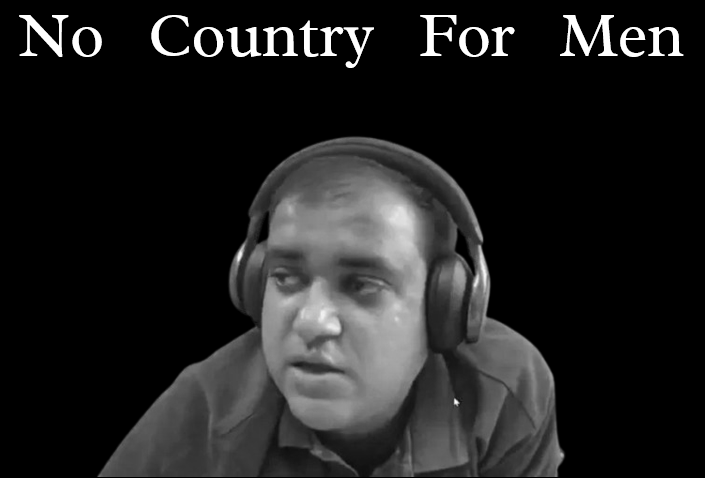No Country For Men


The case of Atul Subhash was hardly a rarity. Thanks to organizations like the Save Indian Family Foundation and Voice For Men India, and the efforts of activists like Deepika Narayan Bharadwaj, the deepening perils of men in India come to the fore and their high frequency provoke much-needed discussions.
What was different here was the higher-than-usual profile that this incident received. Not since the case of Sarabjeet Singh has a case garnered such publicity. Some attribute it to the note that Atul had penned — long, and almost clinical in his explanation of why he was about to take the extreme step. Complementing it was a video of nearly one-and-a-half-hour length devoted to the same purpose.
So detailed a statement is seldom found. Lending gravity to it was the allegation Atul made against the presiding judge, Rita Kaushik. In court when his wife asked him why he had not committed suicide yet, the judge laughed, alleged he.
Social media went apoplectic. Justifiably so.
No educated citizen would deny the importance of the rule of law, to which a judicial system is integral. It will not need elaboration that vigilante justice cannot ensure a stable civilization. And yet it would do our nation no service to ignore that courts may hardly be deemed the most edifying places in India to visit. Many on X, formerly Twitter, recounted their own experiences, which suggested that family courts were extortionist institutions for whom hapless men were as easy a prey as a human is to a man-eating tiger.
Nor is it altogether rare for the lawyer representing the man to collude with the other side to prolong the litigation. Thus the equally apposite fury against lawyers.
Of the courts, this much is true: the process is the punishment.
It does not help that judges seem little inclined to say aught on the matter. Their cycle of waxing the same tired lyrical on the Constitution, Magna Carta, and Shakespeare will continue unaffected. For this they shall be applauded as intellectuals of long residence on a higher plane than us mortals. No suo motu cognizance shall be taken, though hopes for it will endure.
None in the media had felt scruples about stopping a little short of branding Sarabjeet Singh a devil incarnate back in 2015. Media trials had been run with something approaching fanaticism. None waited for the investigation to unfold; all took the woman’s word at face value. Perhaps the embers of sensibility after Nirbhaya were still aglow.
Over the years, the character of the woman in question would justly be questioned. It would eventually emerge that she had fibbed through her teeth. She had not the decency to turn up at court hearings and instead reposed snug in Canada. None in the media had the grace to apologize to the man whose social ostracization they had summarily ensured.
The same media now sanctimoniously tells men not to pronounce judgment; that the other side, too, be heard. It is a slenderly saving grace that the number of those doing so appears to have reduced.
Some diseased sub-reddit peopled almost entirely by harridans would go on to describe this, in a now-deleted post, as attention-seeking. Their enlightened rationale: a suicide note should have been terse. Which Sorority of Witless Takes promulgated such standards remains to me a mystery. Ironically, such a take reinforces negative stereotypes about women. It was a well-reasoned note, but perhaps they wanted melodramatic flair.
Some anons on X have rightly pointed out that India is a Republic of overcompensation. Generations of old committed female foeticide and are today atoning by wrecking the lives of blameless young men through the gift, under statute, of almost plenary powers to women. Generations of old perpetrated atrocities on members of other castes — a canon increasingly being covered by the beams of doubt anent its purported scale — the resipiscence for which turned out to be an undying focus on ever-widening caste-based reservations, amply aided by a toxic anti-Brahmin caste discourse. Everything has to be a spectacle; everything a contest of pontification rather than focused, unsentimental crafting of solutions.
I hope for a serious change, but I do not expect it. No politician has yet cared to comment on the issue, with the exception of Milind Deora. For, unlike feminism, men’s rights is not a cause backed by money and the power of international organizations.
DISCLAIMER: The author is solely responsible for the views expressed in this article. The author carries the responsibility for citing and/or licensing of images utilized within the text.
